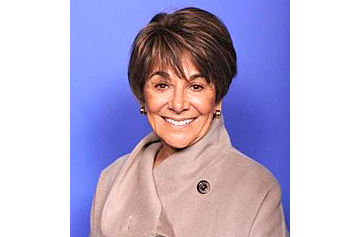
BY EMILY MIBACH
Daily Post Staff Writer
The coalition of political leaders pushing for a $1.50 hike in the bridge toll seems to be coming apart.
Rep. Anna Eshoo, D-Palo Alto, has joined six other members of Congress in coming out against the toll, saying it will hurt the poor who need to use the bridges to drive to and from work.
State Sen. Scott Wiener, D-San Francisco, has written a bill that asks the Legislature to put the toll hike on the November 2024 ballot. Sen. Josh Becker, D-Menlo Park, co-authored the bill.
Other opponents who joined Eshoo include Barbara Lee, D-Oakland, who is running for the U.S. Senate; Mark DeSaulnier, D-Concord and Eric Swalwell, D-Castro Valley.
The toll hike, pitched to last for five years, is expected to generate $180 million a year, which would be spent on transit, though it’s unclear which agencies would get the money. If approved by voters, it would raise the toll on all of the cross-Bay bridges except the Golden Gate, which is run by an independent entity.
Transit agencies are running out of money because they’re not getting the number of paying riders they got before the pandemic.
BART has gotten about 40% of its ridership back compared to 2019, and Muni 61%. SamTrans has gotten about 76% of riders back and AC Transit 63%. Caltrain has gotten 33% of its 2019 ridership back, according to numbers reviewed by the SamTrans board on Wednesday (Aug. 2).
The letter from Eshoo and the others points out that the increase would be on top of a $1 increase slated for January 2025, and would be the fourth increase of bridge tolls over six years.
The letter also points out that there is not easy to access information or analysis on how the funds raised by the toll will be distributed or used. Additionally, the members of Congress posit that it is not clear to them how many of their constituents will benefit and how many will be hit financially by the increase.
The congressional representatives are asking the Legislature for further information including:
• A cost-benefit analysis of the impact of the toll increase on the average driver;
• A plan for independent oversight of how the money is distributed and how it is used;
• Analysis of which agencies get money and their areas of service versus where the drivers who pay the tolls come from;
• Information on how the tolls will help the transit agencies so they don’t need more bailouts;
• An economic analysis on low-income commuters.
The bill is currently in the Assembly Appropriations Committee after passing out of the state Senate in May.
